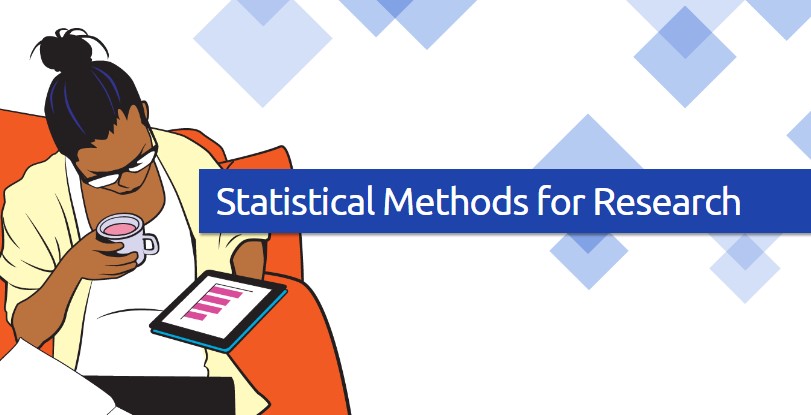Statistical Methods for Research is a foundation programme in Statistics, providing students with the practical, transferable skills needed to conduct statistical analysis at postgraduate level and beyond. There are five versions of this programme covering the following disciplines: Biomedical Sciences, Business, Engineering, Natural Sciences and Social Sciences. Please ensure you select the appropriate version for your area of research.
To access the programmes listed below you will need to register for an account at https://courses.epigeum.com/using your shu.ac.uk email address and enter the relevant token 1b54d4f6. You do not need to pay for these programmes. Please see here for details on how to do this. The hyperlinks below will work once you are logged in (they work best in Chrome, Firefox or Edge).
Introduction – Statistics in the context of research
This course provides an outline of the programme and an overview of Statistics. Through interactive polls and a pre-programme quiz, it gives participants an opportunity to assess how much they already know. This course will take around 135 minutes to complete.
Thinking statistically – Describing data well
This course will help students to identify categorial and quantitative variables and to distinguish between the statistical tools used to summarise each type of data. It will introduce students to visual representations of more complex summaries (such as box plots) and to measures of variability, such as quartiles and standard deviation. This course will take around 105 minutes to complete.
Thinking statistically – Making good generalisations
This course will enhance participants’ grasp of statistical concepts such as samples, populations, and estimates. It will explain why presenting the standard error of an estimate is crucial for making a valid generalisation, and will demonstrate how the Normal distribution is used to compute a confidence interval. This course will take around 115 minutes to complete.
Which hypothesis test should I use?
By the end of this course, participants will have an increased understanding of statistical hypothesis testing. They will be given the chance to interpret the result of a hypothesis test using a p-value and the null hypothesis, as well as to interpret the results of hypothesis tests produced by statistical packages. They will be able to determine which hypothesis test is most appropriate for their data, particularly if they have several samples to compare. This course will take around 108 minutes to complete.
Statistical modelling
This course highlights the characteristics and advantages of a statistical model. By the end, participants will be able to recognise the link between a one-sample t-test and the simplest summary model, and will be able to explain straight line regression and the quadratic regression model. This course will take around 101 minutes to complete.
Analysis of categorical data
This course investigates the strategies for testing hypotheses when the outcome of interest is binary. It demonstrates the two-sample z-test and the chi-squared test, assesses the adequacy of methods based on a Normal approximation and emphasises the need for exact methods. This course will take around 91 minutes to complete.
Conclusion putting your skills into practice
This course provides participants with a chance to implement the practical knowledge they have gained throughout the programme, specifically through the completion of a model report. They will also be able to re-take the pre-programme quiz in order to gauge how much their understanding of Statistics has improved. This course will take around 86 minutes to complete.
All images are the copyright of Epigeum.
